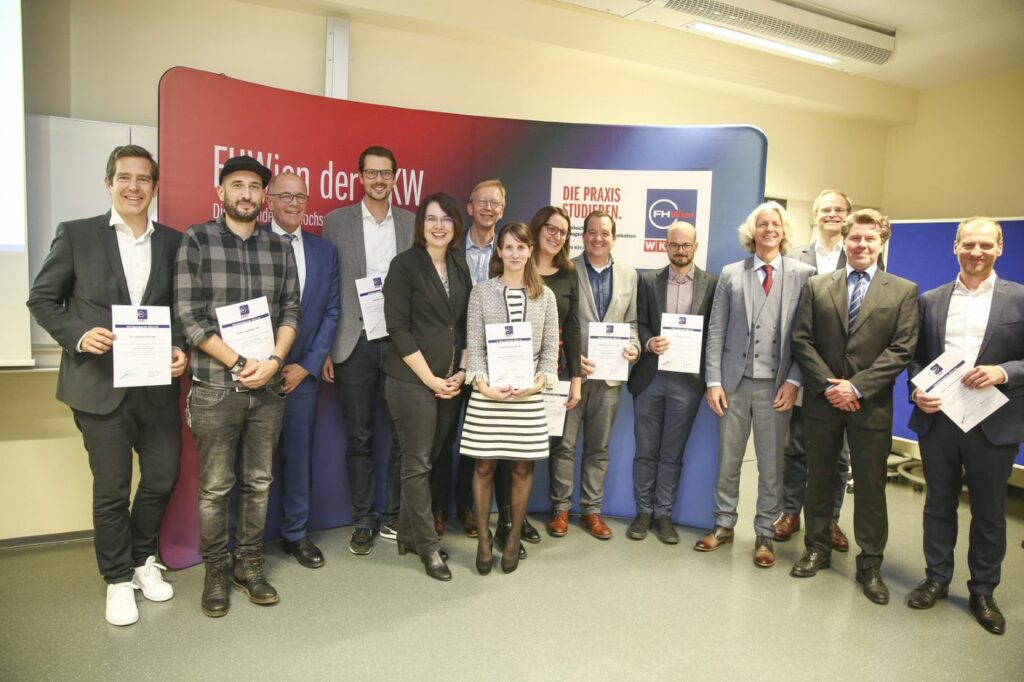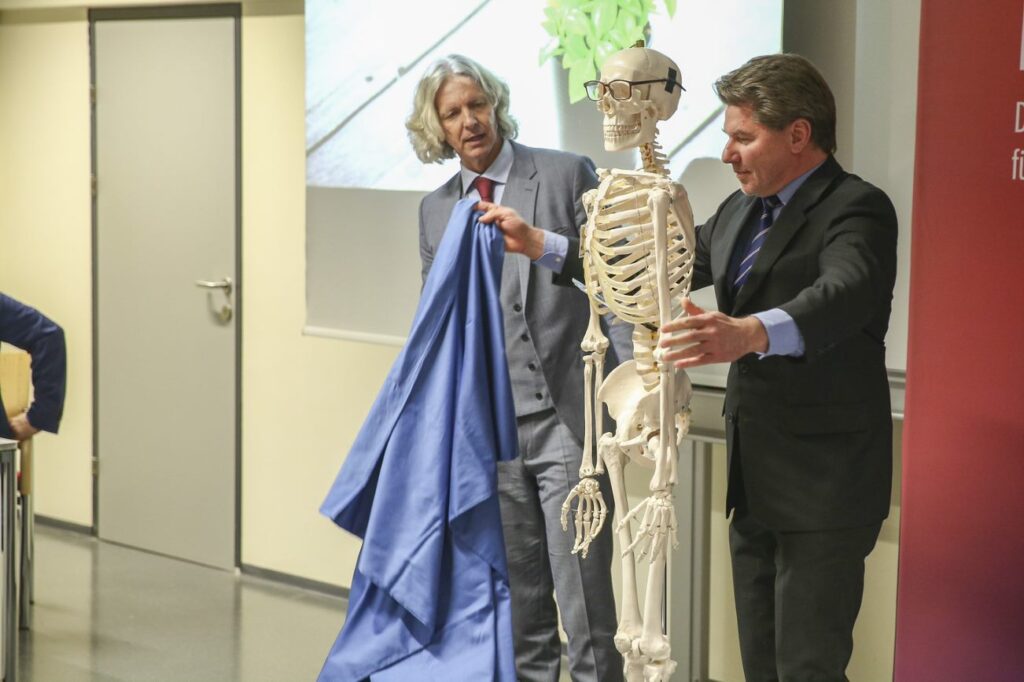FHWien of WKW honors innovative didactic projects every year with the award for innovative teaching. From a total of 24 submissions – an absolute record – the following winners were selected by the teaching and learning – working group under the direction of FH Prof. Dr. Beate Huber, Chair of the College of the University of Applied Sciences, and Dr. Vrabl Olivia, university didactics specialist:
In the category INDIVIDUAL INNOVATIVE ELEMENTS there are this time one first and two second places:
FH-Doz. Mag. Gerhard Fenkart-Fröschl reached the first place. He packaged the topic of financing, investment & controlling in the Corporate Communication course of study into an exciting criminal case as an interactive computer game. The students work independently on the solution, whereby they are supported in their learning process by extensive tutorials and also sample solutions for self-assessment. In the face-to-face class itself, the different approaches to the solution are then reflected upon and the case is resolved. The interactive game is a showcase example for the interweaving of asynchronous with synchronous teaching.
Second place goes to Dr. Hermann Kunesch. In his course “Production” students compete against each other in various games. This “Game-based Learning!” arouses interest and enables varied active learning.
The other second place goes to Mag. (FH) Lukas Schober. The course “Strategy” in the study program Corporate Management picks up current learning psychological findings and implements them consistently in the didactic conception of the course. The result is well-founded and well thought-out teaching that focuses on affective learning.
The award in the category SUSTAINABLE DEVELOPMENT GOALS IN TEACHING went to the following projects:
First place went to the team Dr. David Dobrowsky, Mag.a Birgit Schaller and Dr.in Simone Zwickl. The handling of children’s rights was processed as a digital case study for UNICEF. The students are picked up emotionally and deal with children’s rights. They develop ideas and concepts on how the topic of children’s rights can be communicated in schools. The transfer of learning is linked to a socio-politically important topic.
Second place goes to Katharina Rotter, BA MA. She linked strategy development with sustainability in the course “Strategic Management” and the students had the opportunity to present their business models to real companies. This is motivating and adds value to the companies. The idea of a “speed dating of concepts” was also convincing.
The large number of submissions caused the jury to award appreciation prizes for outstanding projects.
FH-Prof. Dr. Florian Aubke and Dr. Clemens Költringer: They design the start of the semester of their master program as a bar camp and thus ideally combine individual prior knowledge of the students with the getting-to-know phase.
Dipl.-Bw.in (FH) Regina Czurda, BA: Her lecture offers a “playground” for new learning. The students design and test didactic formats, they set their own goals and experience the variety of didactic possibilities.
Dr. Christian Kreidl: He has implemented the topic of accounting in the Tourism Management course as an exemplary Flipped Classroom solution with an impressive interweaving of on- and offline activities.
Marcus Linford, MA: In the Tourism Marketing course, students are given practice-oriented application and reflection questions after each unit, which they work on in a self-organized manner. A reflection takes place at the beginning of the following course.
MMag.a Sigrid Maxl-Studler: The course “Business Administration” in the study program Tourism Management is a professionally structured and actively designed online event. The involvement and activation of the students is very well received and is reflected in the excellent student evaluations.
Stefan Nafra, MSc (WU): His course “Application Design & Development” in the Digital Business degree program uses real-life problems to develop the theoretical content. The course makes programming fun and is characterized by an extensive mix of methods.
Florian Schallmeiner: In the course “Business Evaluation” students are invited one week before the course to answer questions, which are then discussed with a student co-moderator in the course.
Kambis Kohansal Vajargah: The course “Entrepreneurship and Innovation” in the Business Management study program conveys enthusiasm for entrepreneurial action. Students develop sustainable business models and receive ongoing feedback from the instructor as a “sparring partner”.
Nora Wenzl, BA MA PhD: The submitted project sensibilizes the students for the different demands of digital and analog communication and enables them to flexibly adapt their communication to the specific setting.
FHWien of WKW congratulates all award winners and thanks all participating lecturers!

